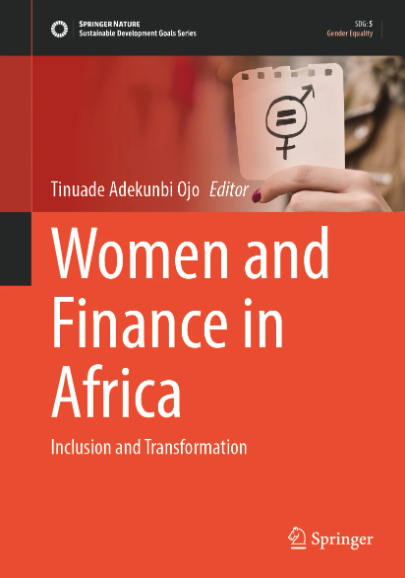Women and Finance in Africa: Inclusion and Transformation
This volume presents a collection of cases that examine the status of financial inclusion for women across a variety of states in the African continent. The book uses a qualitative research method and presents both primary to secondary data to narrate the impact of gender-responsive budgeting on women’s empowerment and gender equality in these communities. The chapters present the analysis of the effectiveness of African state’ approaches and share lessons that different African economies, whether currently booming or struggling, can enhance or implement toward the financial inclusion and gender budgeting response at all structural levels. The main objectives of this volume are to understand different processes for financial inclusion to gender issues at a national level and to help encourage reflection on what lessons could be learned between states and what factors cause divergence in multilateral settings so that they can be understood and addressed.
DOI: https://doi.org/10.1007/978-3-031-53337-2
Chapter: The Role of Institutions in Promoting Financial Inclusion of MSMEs in Zimbabwe
Written by Belinda Chaora
Institutions play an important role in the delivery of financial products and services and are a vital component of the financial inclusion ecosystem. In Zimbabwe, the definition of financial inclusion is limited to access and use of financial products and services from formal institutions in the financial service sector such as insurance agents, mobile network operators, banks, microfinance institutions, remittance agents and fintech companies. Their oversight, regulation and survival are determined by the policy environment around them. The definition of inclusion, however, does not account for the informal operations which are taking place in Zimbabwe where 52% of micro, small, and medium enterprises (MSMEs) are informal and therefore look to other avenues for access to financial products and services. This chapter processes data from a nationwide survey of MSMEs as primary data and subsequently uses secondary sources to compile other informal institutions influencing the financial habits of MSMEs in Zimbabwe. The chapter outlines some of the barriers experienced by MSMEs when attempting to access products and services from formal sources. It further outlines the key players in financial service provision and their roles noting that other institutions (social and cultural) should additionally be considered in future efforts to understand the state of inclusion and promote financial equity in Zimbabwe.

